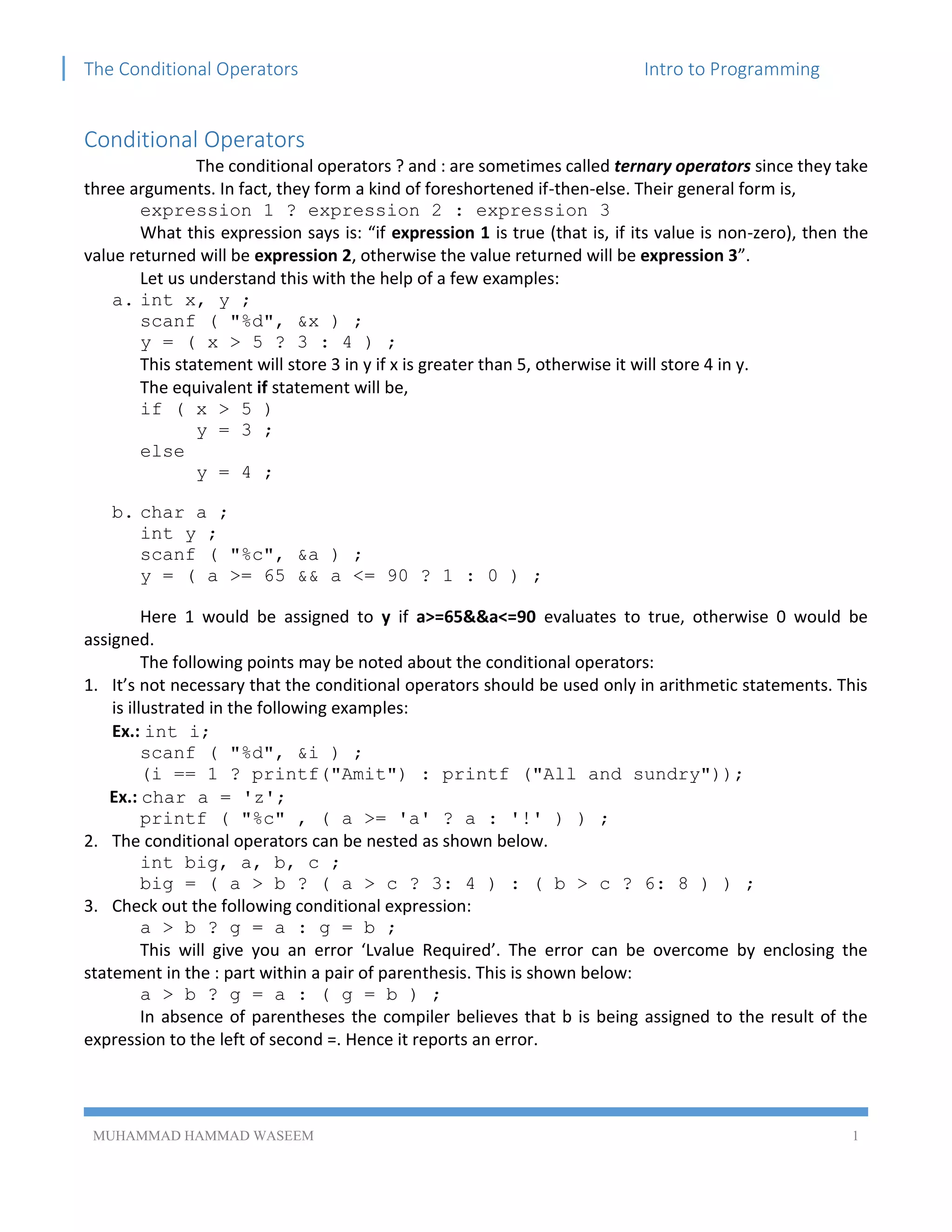The conditional operators ? and : are sometimes called ternary operators since they take three arguments. They provide a shorthand way to write if-then-else statements in one line. The general form is expression 1 ? expression 2 : expression 3, which will return expression 2 if expression 1 is true, and expression 3 if expression 1 is false. Examples show how conditional operators can be used to assign values based on boolean expressions or character ranges. Nested conditional operators and limitations where only one statement is allowed after ? or : are also discussed.

